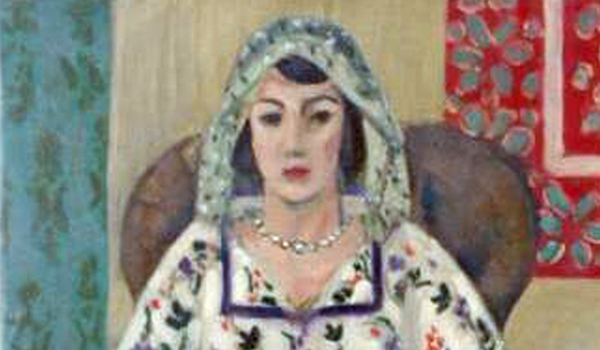Law & Politics
Rosenberg Heirs’ Claim to Gurlitt Matisse Stalled


Henri Neuendorf


Detail from Henri Matisse’s Seated Woman/Woman Sitting in Armchair (1921).
Photo: Lost Art Koordinierungsstelle
The restitution of a portrait by Henri Matisse found in the Munich apartment of the late Nazi-looted art hoarder, Cornelius Gurlitt, which was traced to the legendary French dealer and collector, Paul Rosenberg, is facing additional delays, Monopol reports.
In June 2014, the committee tasked with the provenance research of the disputed Gurlitt collection determined that Seated Woman/Woman Sitting in Armchair (1921) had belonged to Rosenberg (see Matisse From Gurlitt Trove Once Belonged to Paul Rosenberg).
According to a statement by the Kunstmuseum Bern, the claimants—Rosenberg’s heirs—have not provided all of the required documents in their case. In order to release the artwork the heirs are required to prove their inheritance rights. The Rosenberg heirs only submitted the relevant evidence to the German Federal Commissioner for Culture and Media at the end of January; in mid-February the heirs agreed to submit the missing documents via their legal representative.
Before his death Gurlitt controversially bequeathed his disputed art collection to the Kunstmuseum Bern. The museum has claimed that the procedural delay in the Rosenberg restitution case has been further prolonged by Gurlitt’s cousins Uta Werner and Dietrich Gurlitt’s disputing the validity of the will, and laying claim to the Matisse painting themselves.
However, this argument was denied by a representative of the Rosenberg family, Chrisopher Marinello, who told artnet News “An agreement has been signed between the family of Uta Werner and the Rosenberg heirs which represents an unconditional renunciation of any interest in the Rosenberg Matisse.” (see Dispute Over the will Delays Gurlitt Acquisition by Kunstmuseum Bern).
The institution stressed that it was working closely with the German government and the heirs to restitute the painting as quickly as possible.
UPDATE: Christopher Marinello from Art Recovery, who represents the claimants, reached out to artnet News to reiterate that the Kunstmuseum Bern’s claim that Gurlitt’s cousins are behind the delays was unfounded: “Uta Werner’s lawyers and I entered into an agreement where she renounced any and all rights to the Rosenberg Matisse and consented to its return to the rightful heirs.”
Marinello was angered by the museum’s blaming of the Rosenberg heirs for not producing documentation: “The press release from the Kunstmuseum dated 20 February is misleading and inaccurate not to mention highly insensitive to the heirs of nazi looting,” he told artnet News.
Marinello explained: “The Kunstmuseum has never requested any documentation and their lawyer has written to me that ‘The responsibility for the restitution of the Matisse is with the Federal Republic of Germany’.”
When a request for additional documentation did arrive, he claims: “We received a letter from Dr. Guenter Winands of the German Ministry of Culture and media on November 25, 2014, almost one year after the Gurlitt hoard came to light. Not in June 2014. They asked for copies of all the Rosenberg Wills for every deceased family member, in France and in the US, Power of Attorney forms, certified, apostiled, translated into German and Notarised. They then demanded original documents only. All this during the US Thanksgiving Holiday and before the Christmas holidays when most archives and government offices were closed. We worked hard to produce everything that they requested by mid-Janauary 2015.”
But that was not the end of the bureaucratic tribulation. The same Ministry apparently rejected the broad Power of Attorney forms supplied by Marinello and demanded more specific forms that allow him to accept the painting on behalf of the Rosenberg heirs. “Rather than fight them on this ridiculous request, we produced new forms signed by every Rosenberg heir (in German and notarised) just a few days ago. This is hardly compliance with the Washington Principles of 1998 and the subsequent Terezin Declaration of 2009,” Marinello pointed out.
“All the documentation is in their hands as we await a long promised Restitution Agreement that will see this painting returned to its rightful owners 75 years after it was stolen.” (see Chris Marinello is the Sherlock Holmes of Art Crime). Marinello concluded by commenting, “Bureaucracy is meant to serve and assist the people. The people are not meant to serve the Bureaucracy.”